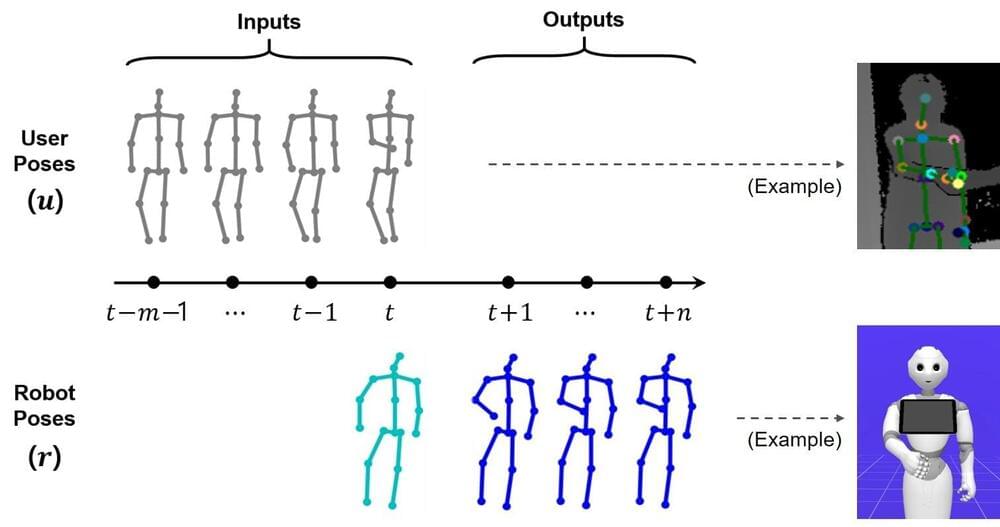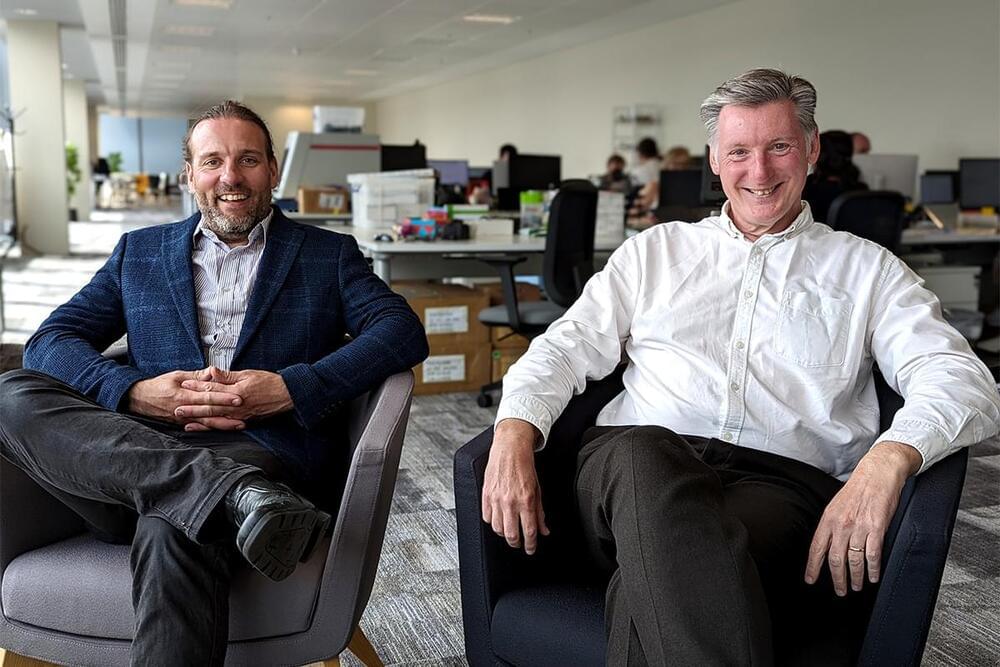Researchers at the Electronics and Telecommunications Research Institute (ETRI) in Korea have recently developed a deep learning-based model that could help to produce engaging nonverbal social behaviors, such as hugging or shaking someone’s hand, in robots. Their model, presented in a paper pre-published on arXiv, can actively learn new context-appropriate social behaviors by observing interactions among humans.
“Deep learning techniques have produced interesting results in areas such as computer vision and natural language understanding,” Woo-Ri Ko, one of the researchers who carried out the study, told TechXplore. “We set out to apply deep learning to social robotics, specifically by allowing robots to learn social behavior from human-human interactions on their own. Our method requires no prior knowledge of human behavior models, which are usually costly and time-consuming to implement.”
The artificial neural network (ANN)-based architecture developed by Ko and his colleagues combines the Seq2Seq (sequence-to-sequence) model introduced by Google researchers in 2014 with generative adversarial networks (GANs). The new architecture was trained on the AIR-Act2Act dataset, a collection of 5,000 human-human interactions occurring in 10 different scenarios.








